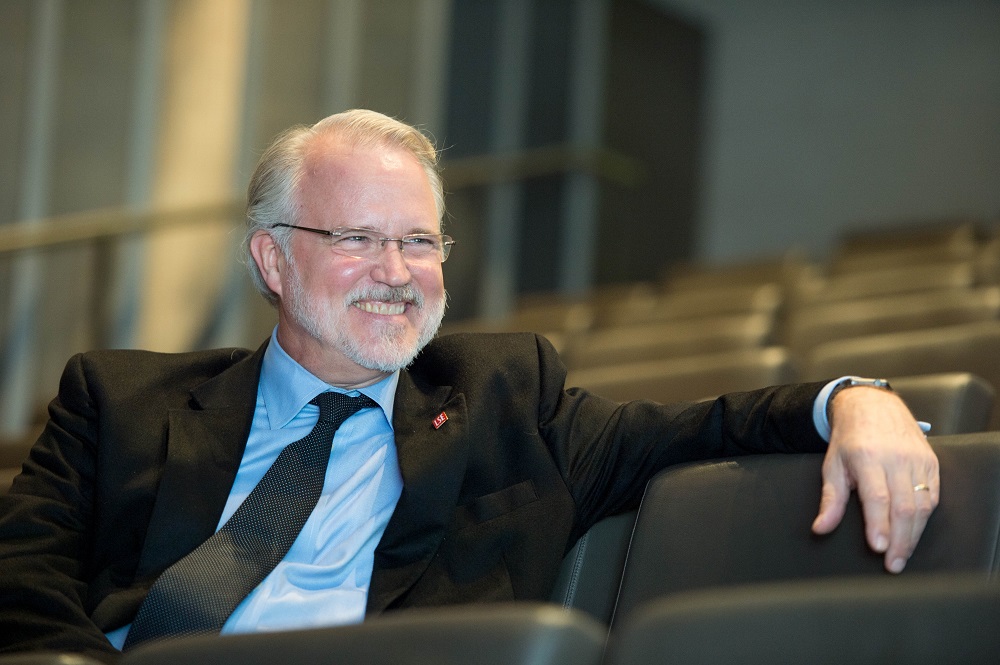
Craig Calhoun has been director of the London School of Economics and Political Science since September 2012 and is poised this summer to become the new president of the Berggruen Institute, a “think and action tank” concerned with political governance, philosophy, and cross-cultural understanding that is building new headquarters in L.A.’s Brentwood neighborhood. Among Calhoun’s books on politics and social movements are Neither Gods Nor Emperors: Students and the Struggle for Democracy in China and The Roots of Radicalism. Before he discussed whether America is still a British colony, he talked in the Zócalo green room about how he got in trouble as a kid, an airplane conversation he couldn’t get out of, and a particularly American way of conversing.
You were born in Watseka, Illinois. What’s one thing people don’t know about your hometown?
Actually, I don’t know much about it. I didn’t live there—I was just born there. Watseka was the county seat and my father was minister of an even more obscure town—Cissna Park. I was out of there before I was two.
What dessert do you find impossible to resist?
Pecan pie, which is one of the things I long for here.
What’s the strangest conversation you’ve had on an airplane?
I decided to pretend I was a surgeon once and had a long conversation with the person next to me about their grievances about medicine and surgery. The mother-in-law of the person had a surgery that went wrong. I had no graceful way to get out of the conversation.
How did you get into trouble as a kid?
A variety of ways. Being a smart mouth, I suppose, was the biggest thing.
If you could play any musical instrument, which would you choose?
The piano, for sure, because they’re around all the time.
Where do you come up with your best ideas?
Either in the shower or in a bar talking with somebody where I fail to write them down.
You’ve done studies of historical sociology. What’s one idea in sociology you’re glad we’ve moved past?
The idea that you can study a bunch of American men and conclude that you understand human nature, or even America.
What is your greatest extravagance?
I still have my house in New York, which is a really inconvenient and expensive way to have a summer or weekend house when I live in London.
What does it mean to be American?
It means feeling a little more relaxed, and feeling like you can get into a conversation and laugh and join in. So, less inhibited physically. It also means having to take responsibility for global interventions that you wish you had never been a part of.



